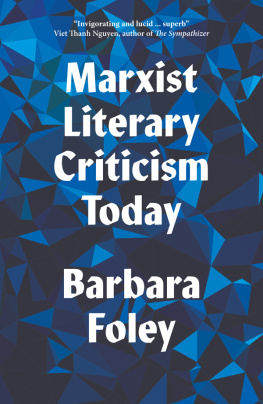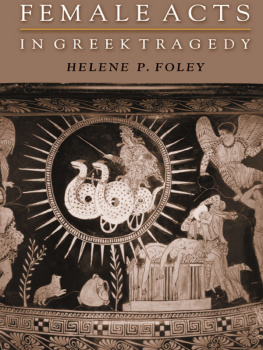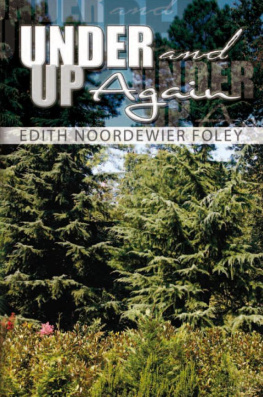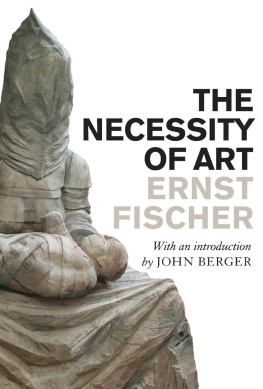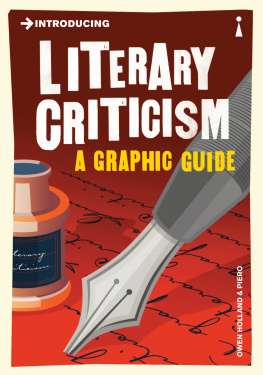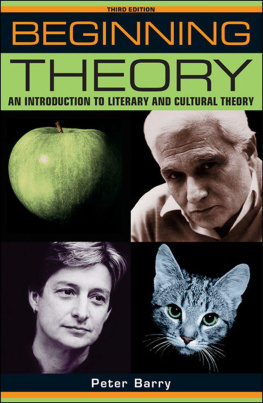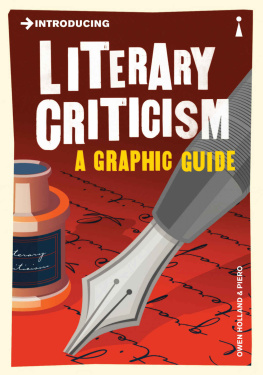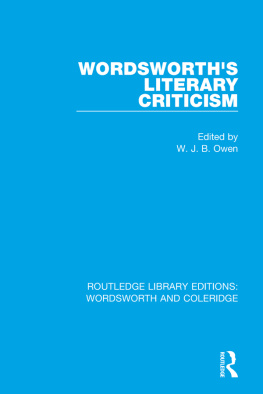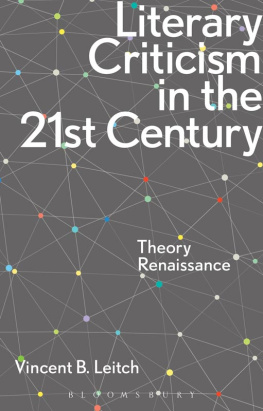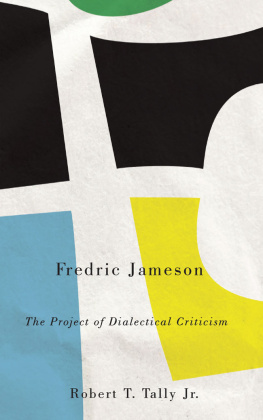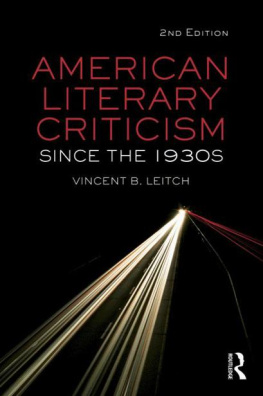Foley - Marxist Literary Criticism Today
Here you can read online Foley - Marxist Literary Criticism Today full text of the book (entire story) in english for free. Download pdf and epub, get meaning, cover and reviews about this ebook. City: London, year: 2019, publisher: Book Network Intl Limited trading as NBN International (NBNi);PlutoPress, genre: Politics. Description of the work, (preface) as well as reviews are available. Best literature library LitArk.com created for fans of good reading and offers a wide selection of genres:
Romance novel
Science fiction
Adventure
Detective
Science
History
Home and family
Prose
Art
Politics
Computer
Non-fiction
Religion
Business
Children
Humor
Choose a favorite category and find really read worthwhile books. Enjoy immersion in the world of imagination, feel the emotions of the characters or learn something new for yourself, make an fascinating discovery.
Marxist Literary Criticism Today: summary, description and annotation
We offer to read an annotation, description, summary or preface (depends on what the author of the book "Marxist Literary Criticism Today" wrote himself). If you haven't found the necessary information about the book — write in the comments, we will try to find it.
Marxist Literary Criticism Today — read online for free the complete book (whole text) full work
Below is the text of the book, divided by pages. System saving the place of the last page read, allows you to conveniently read the book "Marxist Literary Criticism Today" online for free, without having to search again every time where you left off. Put a bookmark, and you can go to the page where you finished reading at any time.
Font size:
Interval:
Bookmark:

Marxist Literary Criticism Today
Barbara Foley

First published 2019 by Pluto Press
345 Archway Road, London N6 5AA
www.plutobooks.com
Copyright Barbara Foley 2019
Every effort has been made to trace copyright holders and to obtain their permission for the use of copyright material in this book. The publisher apologises for any errors or omissions in this respect and would be grateful if notified of any corrections that should be incorporated in future reprints or editions.
The right of Barbara Foley to be identified as the author of this work has been asserted by her in accordance with the Copyright, Designs and Patents Act 1988.
British Library Cataloguing in Publication Data
A catalogue record for this book is available from the British Library
ISBN 978 0 7453 3884 2 Hardback
ISBN 978 0 7453 3883 5 Paperback
ISBN 978 1 7868 0411 2 PDF eBook
ISBN 978 1 7868 0413 6 Kindle eBook
ISBN 978 1 7868 0412 9 EPUB eBook
This book is printed on paper suitable for recycling and made from fully managed and sustained forest sources. Logging, pulping and manufacturing processes are expected to conform to the environmental standards of the country of origin.
Typeset by Stanford DTP Services, Northampton, England
Simultaneously printed in the United Kingdom and United States of America
Since this book contains several decades worth of thinking about how to teach Marxist approaches to literary criticism, I am indebted to many students, colleagues, comrades, and friends. Perhaps my greatest debt is to the many students, undergraduate and graduate, who have challenged me in my classes over the years; the questions that I ask here, and attempt to answer, derive largely from their probing and prodding. As this book took shape, Pat Keeton, Gregory Meyerson, and Bill Sacks read early versions of several chapters and offered helpful criticisms. I received useful feedback on early drafts of the section outlining basic principles of Marxism from the following young interlocutors: Kamika Bennett, Peter Foley, Mani Martnez, Jason Myers, Ike Onyema, and Grace Prial.
For my understanding of Marxist theory, such as it is, I am indebted to more people than I can begin to mention. The members of the manuscript and editorial collectives at Science & Society come to mind: Russell Dale, Raju Das, Sheila Delany, Martha Gimenez, Gerald Horne, Julio Huato, Gerald Meyer, Paul Mishler, Bertell Ollman, Juan Rodriguez, Rachel Rubin, Shana Russell, Jim Smethurst, Lise Vogel, Alan Wald, and above all David Laibman, the journals learned and tireless editor. I also have benefited greatly from the wisdom of the reading groupwe call ourselves the WMDs, that is, Wielders of Marxist Discourse!in which I have participated for the past decade and more: Renate Bridenthal, Hester Eisenstein, Jack Hammond, Paul Montagna, and Ellen Schrecker.
The many stimulating discussions at the summer institutes of the Marxist Literary Group have motivated me to think more deeply about historical materialism, dialectics, ideology, and political economy. I hesitate to name names in this context, largely because it is the collective conversation that makes the MLG gatherings so valuable. But I need especially to mention what I have learned from working with Anna Einarsdottir, Bret Benjamin, Beverly Best, Nicholas Brown, Kanishka Choudhury, Kevin Floyd, Neil Larsen, Carolyn Lesjak, Courtney Maloney, Tony Squiers, and Paul Stasi. I am also indebted to several leftist scholars and writers whom I know from a variety of other venues, including Roxanne Dunbar-Ortiz, Teresa Ebert, Stephen Ferguson, Katherine Fischer, Paul Gomberg, Rodney Green, Rosemary Hennessy, Michael Roberto, Rosaura Sanchez, Albert Sargis, Wang Fengzhen, and Masud Zavarzadeh.
Many past and present colleagues in the English Department at Rutgers University-Newark have been companionsintellectual, emotional, and politicalin a work-life at times harried, but made gracious by their presence over the years: thanks especially to Sadia Abbas, Frances Bartkowski, Sterling Bland, H. Bruce Franklin, Rachel Hadas, David Hoddeson, Tayari Jones, Mal Kiniry, Janet Larson, Laura Lomas, Jack Lynch, Gabriel Miller, Madelyn Munoz, Subramanian Shankar, Ameer Sohrawardy, and Virginia Tiger.
The crucial need to conjoin theory with practicein the academy and beyondhas continually been impressed upon me by various colleagues in the Radical Caucus of the Modern Language Association: Michael Bennett, Finley Campbell, Norma Cant, Anthony Dawahare, Basuli Deb, Brian Dolinar, Grover Furr, Marcial Gonzlez, Paul Lauter, John Maerhofer, Richard Ohmann, Susan OMalley, Leo Parascondola, Joseph Ramsey, and Heather Steffen. Farther removed from the groves of academe, but for that reason all the more profoundly formative, have been my experiences over the years with in-the-streets activists, some of them committed communists, who have acted upon Marxs call not just to interpret the world but to change it. Their names are legion; to list them would be to bring my entire adult life into view. I cannot thank them enough for helping me to understand the ways in which sexism, nationalism, and racism, toxic features of our past and present, connect back to the pressures of a global socioeconomic system that requires division and inequality and places profit before human need. These comrades have helped me keep in view the red line of history.
Pluto Books has been exemplary in shepherding this book quickly and efficiently through the entire publication process. Many thanks to Emily Orford, marketing manager; Melanie Patrick, designer; Sophie Richmond, copy-editor; Dave Stanford, typesetter; Sue Stanford, proofreader; Robert Webb, managing editor; and above all David Shulman, commissioning editor, who encouraged me while gently holding me to deadlines from start to finish. Thanks also to the anonymous readers of the manuscript, whose assessments of its merits have reassured me as I have worked my way through difficult moments of rewriting and reframing.
I am indebted to several people who helped me through the at times onerous task of obtaining permission to reprint the works of various poets: Joan Ashe at Henry Holt (Robert Frost); Ron Hussey at HMH Trade Publishing (Archibald MacLeish); Tamara Kawar at ICM Partners (Muriel Rukeyser); Dennis Maloney at White Pine Press (Xu Lizhi); Joan Pinkvoss at Aunt Lute Books (Anzalda); Robert Shatzkin at W. W. Norton (Brecht); Alex Smithline at Penguin Random House (Hughes); and Rahiem Whisgary at DALRO Theatricals (Mtshali).
My greatest personal debts are to my daughter Margaret Stevens; my son, Adam Stevens, and his spouse, Helena Ortiz; and my compagno and now spouse, Peter Gardner. In your various ways, you have shown me the real meaning of challenge, love, struggle, and support.
I dedicate this book to my grandchildren: Omar, Alexandra, Iliana, and Jahsiri. You are the future.
We Call Them Greasers, by Gloria Anzaldua, 1987, from Borderlands/La Frontera is reproduced courtesy of Aunt Lute Books.
A Bed for the Night, originally published in German in 1931 as Die Nachtlager, translated by Georg Rapp. Copyright 1961, 1976 by Bertolt-Brecht-Erben/Suhrkamp Verlag, from Bertolt Brecht Poems 1913-1956 by Bertolt Brecht, edited by John Willet and Ralph Manheim. Used by permission of Liveright Publishing Corporation.
Font size:
Interval:
Bookmark:
Similar books «Marxist Literary Criticism Today»
Look at similar books to Marxist Literary Criticism Today. We have selected literature similar in name and meaning in the hope of providing readers with more options to find new, interesting, not yet read works.
Discussion, reviews of the book Marxist Literary Criticism Today and just readers' own opinions. Leave your comments, write what you think about the work, its meaning or the main characters. Specify what exactly you liked and what you didn't like, and why you think so.

